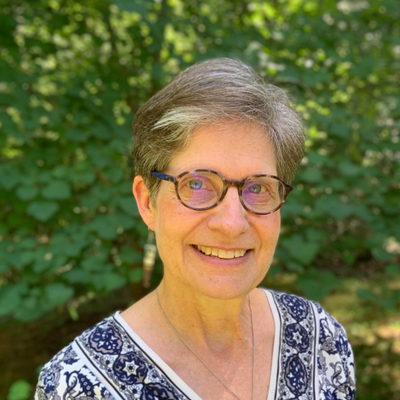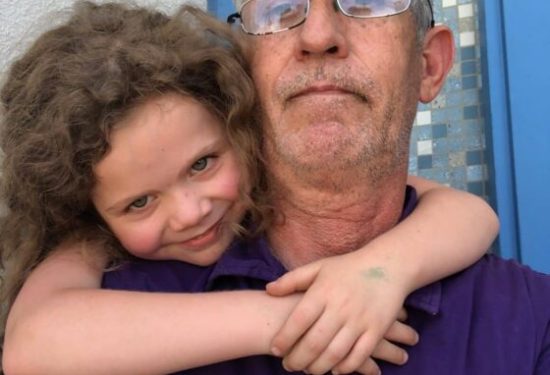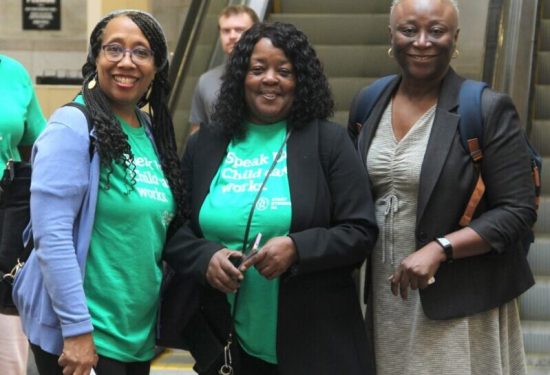Ask child care workers how they are faring post pandemic and most will tell you, they are struggling against a barrage of debt, inflation, high demand from families who can’t find care elsewhere, and low pay. Despite those challenges, the nation’s home-based providers—who care for nearly 6 million 0-5 year olds—are the sustaining power behind the American workforce, healthy communities, and stable families. Every day home-based child care providers nurture, feed, and educate the majority of infants and toddlers in every region of the country and in both urban and rural areas.
Yet these caregivers, many of them grandmothers, aunts, friends, and neighbors who are unpaid or underpaid, and/or from historically marginalized communities, are largely invisible and silent in the national conversation about childcare.
Home Grown wants to change that.
A new initiative called Voices from Home will lift up the stories of family, friend, and neighbor (FFN) providers and give these essential caregivers a seat at the table with the policy makers, funders, and researchers who make decisions about child care funding and regulation. Grants of up to $75,000 will support nation-wide narrative-changing conversations aimed at spotlighting the essential role FFN caregivers play in the child care ecosystem.
Voices from Home grantees will also engage in a monthly community of practice to generate ideas, share data, and hone strategy. “We want to create a strong collective of partners,” says Director of Program Operations Karen Tylek, “that shifts the narrative around FFN by leveraging the wisdom, experience, and voices of FFN caregivers.”
Home Grown is proud to announce the first Voices from Home grantees, a coalition from coast to coast, border to border, serving thousands of home-based providers. We welcome their leadership and their voices as we work together to bolster public recognition and funding for home-based care.
Here’s just the start of what they have to say!
Gracie Martinez, Family Services Program Manager, Child Care Aware of Washington: “We need to reframe the conversation we have with policy makers. I ask them, ‘What did care look like for you when you were growing up?’ Inevitably they say, ‘I was with my mom, or my older siblings, or a neighbor.’ In my Mexican American community today, care looks like aunts, uncles, grandparents. So we are all the same across generations and cultures—a community raising one another. If we can get policy makers to see that informal care was and is the norm because it’s trusted and familiar, then maybe they will also realize that we need to subsidize and invest in it.”
Kate Nobel, Vice President for Policy and Stakeholder Engagement, Growing Up New Mexico. “We want to demonstrate to them that home-based caregivers are an essential part of a fully-functioning child care ecosystem. It is culturally responsive, high quality, developmentally appropriate care. When we recognize and support home-based providers and the families they serve with the same scale that we support center-based care, we are making the child-care system as a whole stronger.”
Alejandra Gonzalez, Regional Program Manager, Visíon y Compromiso (California): “Many children are with their FFN provider for 12 or 16 hours a day for their first four years. These providers do more than change diapers and provide meals. They are the first teachers. If we had the data to show that FFNs are preparing toddlers for preschool and preschool children for kindergarten, we would see how incredibly valuable they are. And they should be earning a much higher wage for teaching our kids.”
Kelly Reynolds, Senior Policy Analyst, Early Edge California: “By strategizing with other organizations in different circumstances and states and combining our data we can really move the needle in the national conversation. For example, we know anecdotally that FFNs are providing high-quality, culturally relevant care for children, especially the 60% of kids in California whose home language is not English, but we need hard data that will drive funding and policy changes. We need to bring FFNs into the system rather than ignoring them or pushing them back because they don’t already have the degrees and certifications by which we define quality.”
Nahliah Webber, Family, Friends, and Neighbor Childcare Coordinator, Training Grounds (Louisiana): “We’re excited about joining efforts with others in the community of practice. With other allies in the fight, we can gather the data we need and demonstrate that there is rigor behind our argument that home-based childcare is vital for our communities. It keeps families stable by providing a safe, nurturing childhood environment that is affordable and accessible. Once that’s in place, opportunities emerge for that family: better work, better income, a sustainable sense of belonging to and thriving in the community.”
Ansley Harron, Family Support Lead, Smart Start of Transylvania County (North Carolina): “What we know is that all the pieces of family support matter. When we support families and home-based providers–with income, transportation, resources, and food–then kids get a great start in life and our whole community will benefit. FFN care is legitimate, indeed essential, early education, and it should be subsidized and supported at the same level as center-based or licensed care.”
Ruth Evangelista, Director & FFN Child Care Provider, La Red Latina de Educación (Minnesota): “So often the work we do is just invisible, but when we all come together we feel validated and included because we see that our story matters. If policy makers don’t listen to and understand the needs and contributions of FFNs who are providing at least half of the childcare in this country, then they can’t build a childcare system that serves all families. This is why Voices from Home is so important. It’s our stories.”




